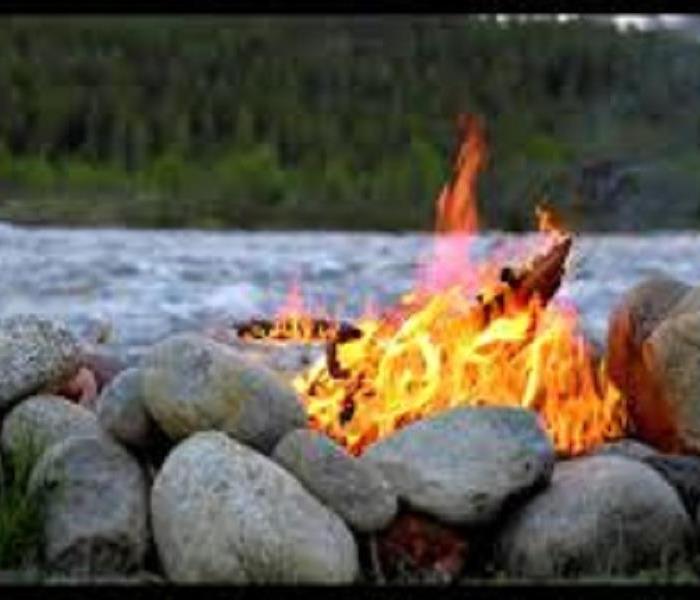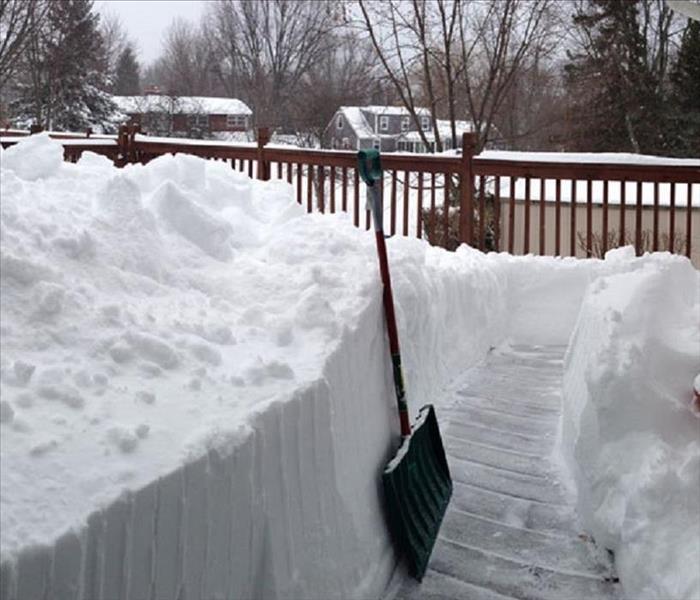Recent General Posts
Using Software to Manage Expectations
10/3/2019 (Permalink)
You need software that connects all the job functions you do in your business. Working with anything less will be detrimental to your financial well being. So, what does this mean to you and your business? In a nutshell, when you receive a loss, you do not automatically know what needs to be done, but you do need to know quickly. Unless your a new start up company, your company is running with several people who are responsible for doing different jobs. For that reason alone, the manager of the process needs to know what is going on at all times. If you use a software that works on a cell phone, information can be added to that software easily from the field. As different people load information remotely, it tells everyone in the company what has happened and what has not yet happened. Having information at the fingertips of the entire team means the person back in the office can easily review notes and find answers for anyone who might call with a question about a project.
Dedication To Education
10/3/2019 (Permalink)
Education in the restoration industry is seeing a revival. While certifications and training have always held value, there are more educational opportunities and certifications available today then ever before. Within the last year, the restoration industry has started offering brand new advanced designations, the IICRC continues offering key certifications, and there are numerous other training events happening across the country on a weekly basis covering everything from drying to large loss to estimating and everything in between. None of that even takes into consideration the larger industry conferences, expos, and trade shows that offer a plethora of educational opportunities on a number of topics related to restoration. Since 2016, nearly 200 people have been nominated for awards in the field of restoration. Each year the field seems to become broader and more competitive , with nominations becoming more in-depth and elaborate. Each year's nominees include owners, VP's, project managers, technicians, operations managers, marketing and sales and more!
How to Prevent Carbon Monoxide Poisoning
8/1/2019 (Permalink)
An excess of CO, leading to CO poisoning, can result from faulty furnaces or other heating appliances, portable generators, water heaters, clothes dryers or idling cars left running in garages. Taking some basic, precationary steps can help eliminate the risk of carbon monoxide poisoning. Make sure to have fuel-burning appliances, like oil and gas furnaces, gas or kerosene heaters, fireplaces, and wood stoves inspected by a trained professional every year. Open the damper for proper ventilation before using a fireplace. Never use your oven or stovetop to heat your home. Make sure all fuel-burning equipment is vented to the outside to avoid CO poisoning. Keep the venting for exhaust clear and unblocked. If you need to warm a vehicle, remove it from the garage immediately after starting it. Never run a vehicle or other fueling engine or motor indoors, even if garage doors are open. Make sure the exhaust pipe of a running vehicle is not blocked with snow, ice, or other materials. Make sure vents for the dryer, furnace, stove, and fireplace are clear of snow and other debris. Only use barbecue grills outside, away from all doors, windows, vents, and other building openings. Some grills can produce CO gas. Never use grills inside the home or the garage, even if the doors are open. And finally, use portable generators outdoors in well-ventilated areas from all doors, windows, vents, and other building openings to prevent exhaust fumes from entering your the home.
Dangers of Extreme Cold
12/26/2018 (Permalink)
While your home can get damaged due to winter weather and extreme cold, your personal health is also at risk. Fifty three people died and three were injured due to extreme cold in 2015. It is important to be aware of the effect extremely cold temperatures can have on you. The two main conditions to be aware of are frostbite and hypothermia. Frostbite is caused when your skin is exposed to extremely cold temperatures. Physical symtoms are white or grayish-yellow skin, skin that feels unusually firm, or waxy numbness. Hypothermia is when your body temperature falls to an abnormally low temperature, caused from long exposure to cold weather. Signs of hypothermia include shivering, exhaustion, confusion, fumbling hands, memory loss, slurred speech, and drowsiness. If someone's body temperature is below 95 degrees F, seek medical attention immediately. To avoid these conditions, stay indooors if possible. If not, dress warm in layers and try to keep dry.
IS YOUR PROPERTY WINTER READY?
10/23/2017 (Permalink)
Cold weather can have a huge impact on your home or business if you are not properly prepared. Whether it is heavy rain, freezing temperatures, damaging winds, sleet or snow, all can cause serious and costly property damage. While you cannot control the weather, you can take steps to be prepared and help take the sting out of winter weather.
To help prevent costly damages due to weather, consider taking the following precautions to protect your property before colder weather hits.
- Check your business property for downed tree limbs and branches. Weather, such as wind, heavy rain, ice and snow, can cause branches to fall, which could cause damage to the property and potentially cause personal injuries.
- Roofs, water pipes and gutters should all be inspected to ensure they are in proper order. Gutter downspouts should be directed away from your building. Clear gutters of debris that may have gathered during fall. Leaves and other obstructions can lead to a damming effect, that can lead to roof damage and interior water problems.
- Inspect property, especially walkways and parking lots, for proper drainage to alleviate flood hazard potential.
- Inspect all handrails, stairwells and entryways to address and correct potential slippery or hazardous areas. Install mats or non-slip surfaces and post caution signs where water could be present.
- Protect water pipes from freezing by simply allowing water to drip when temperatures dip below freezing. If pipes are under a cabinet, leave the cabinet doors open allowing warm inside air to circulate around the pipes. If the building has outdoor faucets, consider shutting water off at the main valve in the basement or crawlspace. Once the valve is off, open the outdoor faucet to ensure it drains, preventing any remaining water from freezing in the pipe.
- Ask your local SERVPRO Franchise Professionals about completing an Emergency READY Profile (ERP) for your business. The ERP is a no cost assessment to your facility, and provides you with a plan to get back in business fast following a disaster.
- When winter weather strikes, call your local SERVPRO Franchise Professionals to strike back.
- SERVPRO Franchise Professionals help meet the real needs of insurers and property owners by supplying reliable and consistent service. The first steps taken in a disaster situation can mean the difference between recovery and total loss.
Are You "Plugged In"?
10/20/2017 (Permalink)
A recent report from the U.S. Fire Administration (USFA) shows home electrical fires claim the lives of 280 Americans each year and also create over 1,000 injuries. Overloaded circuits and extension cords are the cause of most electrical fires in the home and workplace. December and January are the peak months for electrical fires. According to the USFA, the peak in fires is due to the increased time spent indoors, which also increases the use of lighting, heating and appliances. Many electrical fires can be avoided if the most basic safety precautions are taken.
- Routinely check your electrical appliances and wiring.
- Frayed wires can cause fires. Replace all worn, old or damaged appliance cords immediately.
- Replace any electrical tool or appliance if it overheats, shorts out, causes electrical shocks, or gives off smoke or sparks.
- If an appliance has a three-pronged plug, use it only in a three-slot outlet. Never force it into a two-slot outlet or extension cord.
- Use electrical extension cords wisely; never overload extension cords or wall sockets.
Summer Safety
6/16/2016 (Permalink)
 SERVPRO of High Point wishes you a safe and happy summer!
SERVPRO of High Point wishes you a safe and happy summer!
Summer is a time to enjoy the great outdoors, but it is important to also keep safety in mind. Consider the following tips, provided by the National Fire Protection Association, to keep your family safe all summer long.
Hello World
3/30/2016 (Permalink)
This blog was created for the purpose of providing meaningful and accurate information on Commercial and Residential Cleanup & Restoration. We hope to provide an educational (and sometimes fun) resource to inform you about important topics in the restoration industry. We also hope you find the information discussed within to be both beneficial and entertaining. Please check back periodically for updates and let us know what you think…your opinion matters. You can also check-out our SERVPRO of High Point Facebook page or follow us on Twitter @SERVPROHP. Your opinion is very important to us, and helps us improve in a variety of ways. It is input from YOU that keeps us improving, and thus, helps us grow and to keep our doors open. So please contact us at any time. We are open 24 hours a day, 7 days a week!






 24/7 Emergency Service
24/7 Emergency Service

